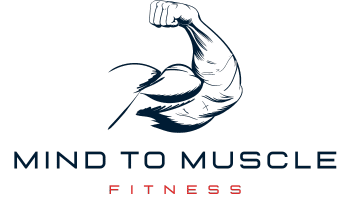
When to Take Collagen for Optimal Strength Benefit
Are you curious about the best time to take collagen for strength training? Knowing when to take collagen can greatly improve its benefits. It can help boost your strength and overall health. Collagen is a key protein that supports your body, which is important during workouts.
We will look into different ways to use collagen. We’ll find out the best times to take it for better muscle recovery and strength.
Understanding Collagen and Its Benefits
What is collagen? It’s a key protein that makes up a lot of your body’s tissues. About one-third of all protein in your body is collagen. It’s important for keeping your skin, bones, tendons, and cartilage strong.
As we get older, our body makes less collagen. This can cause our skin to sag, our nails to become brittle, and our joints to hurt.
But collagen does more than just keep you looking good. It can also make your skin more elastic and hydrated. It helps your joints stay healthy and can even help build muscle. Knowing how collagen works is key to understanding its role in keeping you healthy.
How Collagen Impacts Muscle Strength
Collagen is key for muscle health, providing amino acids for repair and growth. It’s not just for muscles; it also keeps tendons and ligaments strong. These are vital for effective strength training. As we get older, our collagen production goes down.
This decline can make our muscles smaller and weaker. Collagen supplements can help improve muscle strength. Many people see better body composition and strength after using them.
Adding collagen to your routine can change the game for muscle health. It helps your body stay strong and healthy.
Collagen Timing for Strength Training
When you take collagen matters a lot. Experts say the right timing is key for muscle recovery and strength. It’s best to take collagen an hour before or after your workout. This helps your body absorb nutrients better.
Finding the best time for collagen is important. It helps your muscles recover faster. If you’re into strength training, adding collagen to your routine can help repair muscles and boost strength.
Different Types of Collagen and Their Functions
Knowing about the different types of collagen is key to choosing the right supplements. There are over 28 types, but Types I, II, and III are the most important for supplements.
Type I collagen is mostly found in skin, tendons, and ligaments. It makes up over 90% of our collagen. It helps keep skin elastic and strengthens connective tissues. This makes it a top pick for better skin health.
Type II collagen is vital for cartilage health. It’s great for people who do a lot of high-impact activities. It helps joints work better and can lessen pain.
Type III collagen works with Type I to improve skin, blood vessels, and muscle health. It helps these tissues stay strong and elastic. This makes it a key part of a good collagen supplement plan.

Knowing about these collagen types and their roles helps you find the best supplements for your needs. This approach makes your supplements more effective and tailored to your health goals.
The Best Sources of Collagen Supplements
Collagen supplements come from different animals, giving you many choices. You can find them in bovine (cows), porcine (pigs), marine (fish), and eggs. Each type has its own benefits and meets different needs based on what you eat.
Hydrolyzed collagen, or collagen peptides, is a popular choice. It’s made by breaking down the protein into smaller pieces. This makes it easier for your body to absorb, helping you get the most out of collagen supplements.
Eating foods high in vitamins C and E, like citrus fruits and nuts, also helps your body make collagen. Bone broth, made by simmering bones and connective tissues, is another great natural option.
When picking a collagen supplement, it’s important to know the different types and their benefits. Think about your health goals and what you can eat to choose the best one for you.
Optimal Dosage of Collagen for Strength Gains
Finding the right amount of collagen is key for better strength training. For overall health, taking 2.5 to 10 grams daily is suggested. If you’re focusing on joint health or muscle, aim for 10 to 15 grams. This amount is good for those who work out regularly.
To reach your fitness goals, keep your collagen intake steady. Taking the right amount regularly can boost your strength training and health. Keep in mind, results can differ based on your health goals and lifestyle. So, adjust your plan to fit your needs.
Complementing Collagen with Other Nutrients
Collagen doesn’t work alone. It needs other nutrients to work best. Vitamins like C, A, and E, and minerals like copper and zinc, are key. They help your body absorb and make collagen better.
Eating a variety of foods with these nutrients can help a lot. Here are some great foods to add to your meals:
- Citrus fruits: Oranges, lemons, and grapefruits are full of vitamin C, helping make collagen.
- Berries: Strawberries, raspberries, and blueberries are rich in antioxidants, keeping your skin healthy.
- Nuts: Almonds and walnuts have vitamin E, fighting off oxidative stress.
- Leafy greens: Spinach and kale give your body the vitamins and minerals it needs to make collagen.
By eating foods rich in these nutrients, you help your body use collagen better. A balanced diet is key to getting the most from collagen supplements.
Common Misconceptions About Collagen Timing
Many people think you must take collagen on an empty stomach for it to work best. But, this isn’t entirely true. What really matters is being consistent with your collagen intake, not when you take it.
Some folks think when you take collagen doesn’t matter as long as you take it often. But, timing can actually help you build strength better. Knowing the truth about collagen timing helps you use it more effectively.
It’s all about finding what works for you. You can add collagen to your morning smoothie or post-workout shake. The important thing is to stick to it. By avoiding myths about collagen timing, you can make your fitness journey more successful and fun.



